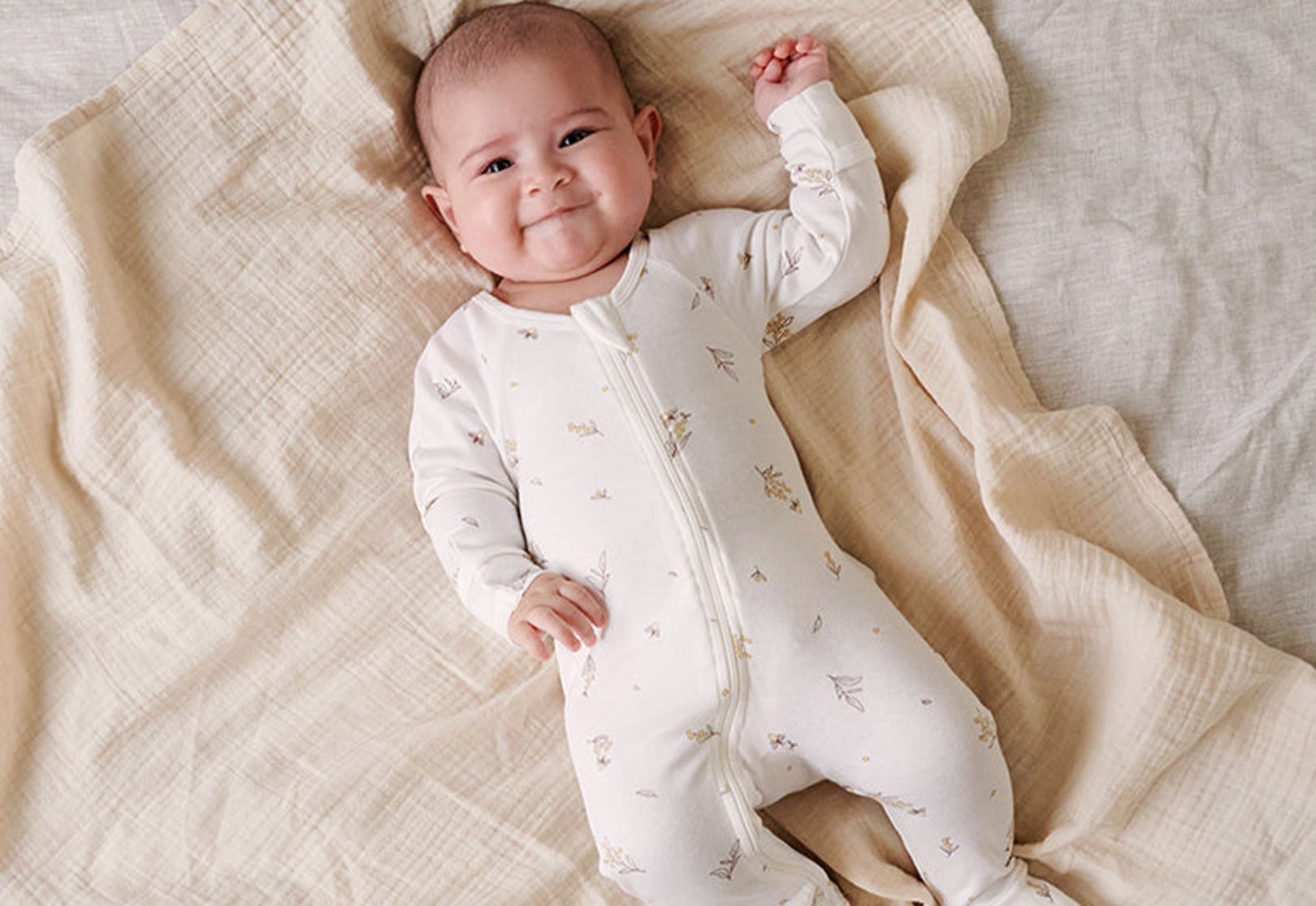
Newborn Baby Clothing Checklist
10 min read | 1 September 2023
New In
Essentials
Clothing
Accessories
Shop By Gender
Shop By Size
Collections
Baby
Clothing
Accessories
Shop By Gender
Shop By Size
Collections
Nursery
Care
Play
Kids
Clothing
Accessories
Shop By Gender
Shop By Size
Collections
Care
Play
Gifts
Baby Gifting
Kids Gifting
Shop By Price
Shop By Event
Shop By Gender
Sale
Sale
Shop By Gender
Learn
Education
Resources
Pre-Loved
Rewards
5 min read | 23 January 2020
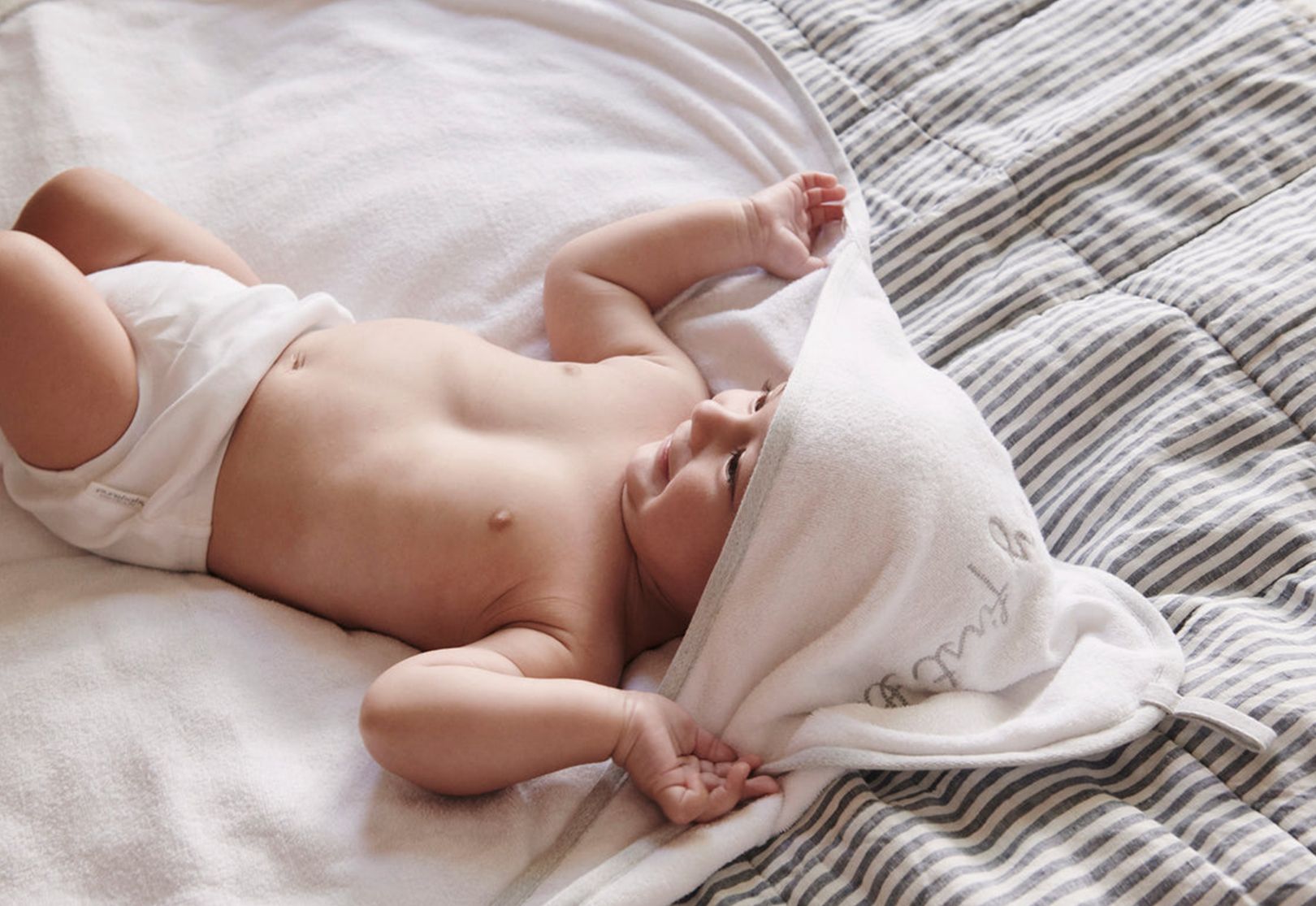
Every child is different, so you will be the best ones to determine the ideal routine for your own child. However, remember that doing things in the same order and at the same time each night is key to establishing good sleeping habits. A bath is one good way to do this.
The last thing you will want to do after baby bath time is trying to wrangle your little ones while you try to find a clean towel. To ensure bath time goes smoothly, have the following baby bath essentials ready and on hand:
3x Nappies (in case of any accidents)
1x Change of clean clothes (such as a
growsuit,
singletand
leggings, or whatever they will be going to sleep in)
2x
Hooded towels(one extra in case of accidents)
2x Muslin face washers (to dry off any parts the towel might of missed)
1x Bath mitt (as an alternative to a face washer)
Mild, sensitive baby soap and shampoo
Nappy change cream and a bowl of warm water
Hairbrush to stimulate the baby's scalp (such as our
goat’s hair brush)
1x Baby bathrobe (to keep them warm in between changing them into their clean clothes)
Every baby needs their very own towel, separate from the rest of the family. You will need a small sized towel for the first few weeks and another regular sized towel, as they grow bigger. Our hooded towels are great for easy wrapping and comfortable drying, while the built-in hood makes drying off their head quick and easy.
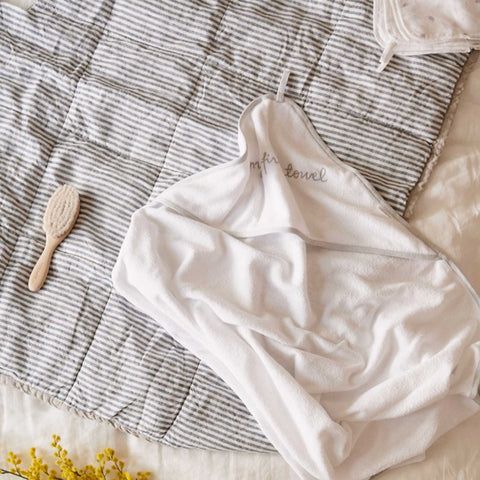
When getting ready to baby bath time, always fill the bath first; checking the temperature is comfortable for soft sensitive skin.
The recommended temperature for a full immersion bath is around 37 degrees for newborns, and 38 degrees for 3-month-olds and older. You can test the water temperature on your wrist or elbow to ensure that the temperature is comfortable. Alternatively, a bath thermometer can be used to accurately measure the water temperature.
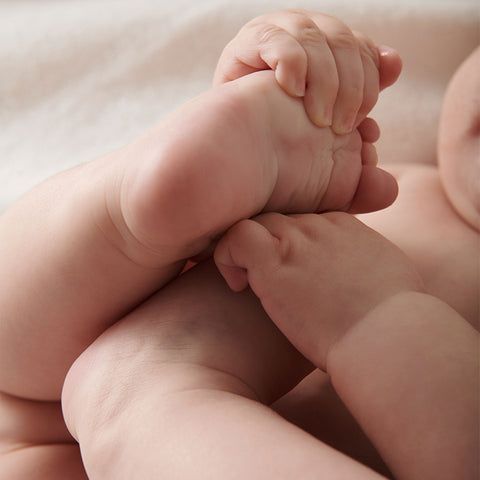
Bathing your newborn for the first time is an exciting time. Follow these steps on safe baby bathing below:
For a sponge bath, start by choosing a safe, flat surface such as a changing table or the floor, in a warm room.
Fill a bowl or baby bath with 5cms of warm water. Be careful to check the water temperature, as water that is too hot may scold baby’s delicate skin, and too cold will lower their body temperature too much.
Undress your baby and wrap them in a towel.
It’s important to clean your little one’s eyes with a
washcloththat’s been dampened with water, no soap. Gently wipe from the inner corner of one eye to the outer corner. Once finished, use a clean corner of the cloth to wash the other eye.
Next, clean your baby's nose and ears with the damp washcloth. Before moving on, wet the cloth again and, use a little soap, if necessary, to gently wash his or her hair/face.
Use the warm soapy water to gently wash the rest of your baby’s body, regularly wringing out the cloth to get rid of any dirt. Pay special attention to creases under the arms, behind the ears, around the neck, and in the genital area.
Pat dry your baby to remove any water from their skin, and once finished, you can start dressing them in a onesie or other comfy outfit. Always be careful to support your baby's head and neck—cradling their crown when carrying them upright or laying them down.
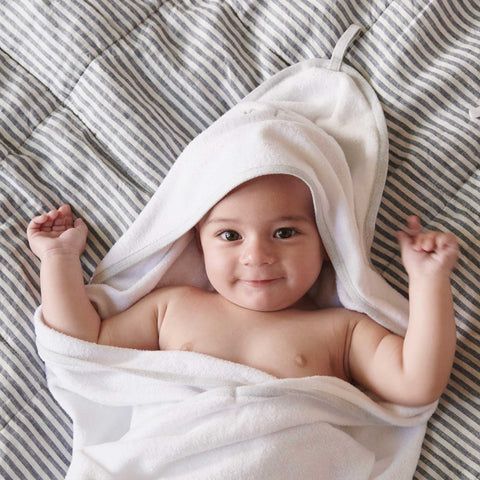
Many people opt for sponge baths until the umbilical cord falls off and the navel heals completely (around 1-4 weeks), this is personal preference. A bath 2-3 times a week in the first year is fine. In fact, more frequent cleaning may only serve to dry out their soft and sensitive skin.
As your child grows older, activity and play are great tricks to keep your squirming little one distracted while you get the job of washing done. Common ways to keep your little one entertained and occupied in the bath while you clean them include:
Water books
Waterproof
toysEmpty vessels from the kitchen cupboard (like clean plastic containers)
Singing to them
Using a mirror
These are great tools to make baby bath time fun and keep your child entertained. Ensure you are always at arm's length and the water height is approximately 5cm deep for a baby up to 6 months old. A non-slip mat in the base of the bath is also a good idea for secure sitting.
In the first few weeks, you can wash your newborn in a small plastic bath, basin or sink. Once they start growing a bit bigger, a plastic baby bath might make it easier to wash them. There is no set time on when they can graduate to a full-size bath, just so long as you feel safe and comfortable with them in it.
Bathing rituals are precious moments together. Make the ritual fun and the soothing warmth of your touch will help forge a special bond that will only grow as your little one does. Explore our collection of baby bathtime essentials, including towels, bathrobes, brushes and more from Purebaby.
Sign up to Pure Love Rewards and get $10 off your first online order, earn points every time you shop and more!